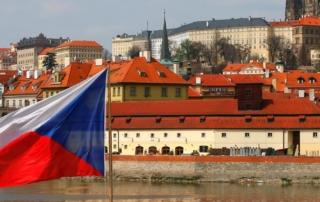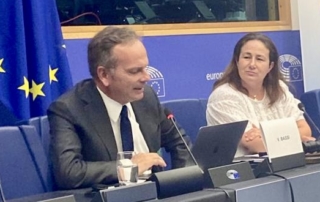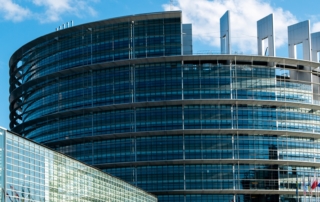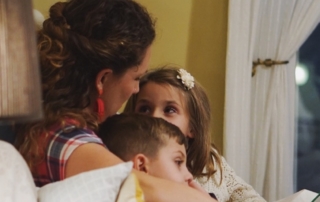European Union
Although family-policies are a national competence and greatly vary across the 27 EU Member-States, the European Union can play an important role in promoting family-friendly policies. FAFCE supports in this direction the daily work of the different EU bodies:
- European Parliament: composed of representatives directly elected by the EU citizens, it participates to produce the EU legislation with the European Council and the European Commission.
- European Council: composed of the EU heads of state or governments, it defines the EU’s political directions and priorities.
- European Commission: composed of designated Commissioners led by a President, it is responsible for proposing legislation, implementing decisions, upholding the EU treaties and managing the day-to-day business of the EU.
- Council of the European Union: composed of Ministers from each Member-States, it meets regularly to discuss specific points on the EU legislation and coordinate EU policies.
- Economic and Social European Committee: composed of representatives of civil society (workers’ and employers’ organisation, interest groups, etc.), this EU advisory body issues opinions on EU issues.
- Committee of the Regions: composed of locally and regionally elected representatives, this EU advisory body produces opinions on EU legislation that directly impact regions and cities.
The European Parliament calls for better child protection in online video games environment
24 January 2023, On the 17th of January 2023 a debate was held at the European Parliament’s plenary sitting in Strasbourg on the subject of Consumer protection in online video games: a European single market approach. The document adopted
Entry into force of new EU work-life balance rights for parents and carers
19 August 2022, Since August 2nd, all EU Member States must transpose the 2019 Work-Life Balance Directive in their national legislations, which introduces new standards for the work-life balance of carers with parental leaves and flexible working arrangements: 4
EU 2022 Czech Presidency: Solidarity, child protection and support to families on the agenda
14 July 2022, From 1st July to 31st December, following France, Czech Republic leads the Presidency of the Council of the European Union, which rotates every 6 months between EU member states. With the motto “Europe as a Task:
Intervention of FAFCE President at the European Parliament on “The richness of the family and its relationships”
11 July 2022, FAFCE President, Vincenzo Bassi, took part to a conference at the European Parliament on the 6th of July 2022 on “The richness of the family and its relationships”, organised by the European Conservatives and Reformists (ECR)
European Parliament recent positions on care, mental health at work, women’s poverty, and abortion
8 July 2022, For the last Plenary before the summer, the European Parliament adopted several resolutions on the upcoming European Care Strategy, mental health at work, and women’s poverty, in addition to a controversial resolution to promote abortion following
LA FAFCE contribue au travail de la Commission européenne sur la fuite des cerveaux en zone rurale
1er juillet 2022, Le 21 juin 2021, la FAFCE a contribué à la consultation publique initiée par la Commission Européenne, intitulée "Fuite des cerveaux - atténuer les problèmes liés au déclin de la population". La fuite des cerveaux est l'émigration
PRESS RELEASE | FAFCE celebrates the International Day of Families
The 15th of May, is the International Day of Families. FAFCE President, Vincenzo Bassi, declares: “This is a special occasion to say thank you to our families, to all its members. It is a precious moment to highlight the hidden and priceless work of many fathers and mothers and the contribution of our families and family networks to the social cohesion of our communities.
Statement of the European Sunday Alliance on the annual European Day for a Work-Free Sunday on March 3 2022
3 March 2022, The 3rd of March 2022 is the European day for a work free Sunday. The European Sunday Alliance calls on political leaders to put as a priority of the EU social policy agenda the establishment of
A mixed message of the European Parliament when it comes to the freedom of expression of NGOs
25th of February 2022, On February 17th, 2022, the European Parliament adopted a resolution on ‘A statute for European cross-border associations and non-profit organisations’, tackling the effectiveness of the freedom of expression for the European civil society, far from
The European Parliament recalls the heavy work of caregivers during the pandemic and their risk to poverty
22nd of February 2022, Last week, the European Parliament adopted two resolutions on the difficult consequences of the pandemic on European families. The texts stressed the obstacles faced by caregivers, especially mothers, in the workplace, and the rise in













